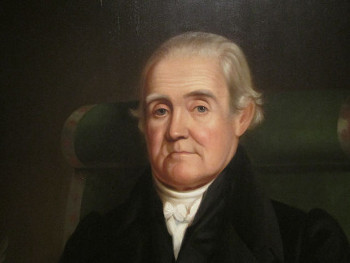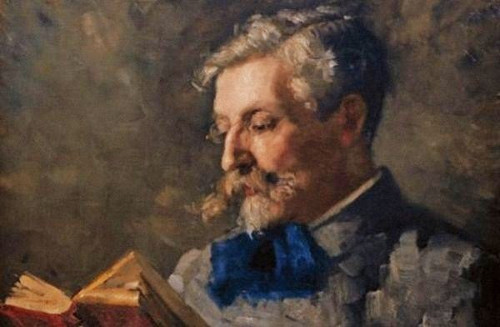
tonitruation
n. thundering
Finnegans Wake is punctuated by ten thunderclaps, which occur at moments of crisis in the text. “A situation is presented, developed, and subjected to increasing stress until, with the thunder, a collapse, and suddenly a complementary situation that was latent in the first is seen to be in place,” writes scholar Eric McLuhan.
First thunderclap:
bababadalgharaghtakamminaronnonnbronntonnerronnuonnthunn-
trobarrhounawnskawntoohoohoordenenthurknuk
Second:
Perkodhuskurunbarggruauyagokgorlayorgromgremmitghundhurthru-
mathunaradidillifaititillibumullunukkunun
Third:
klikkaklakkaklaskaklopatzklatschabattacreppycrottygraddaghsemmih-
sammihnouithappluddyappladdypkonpkot
Fourth:
Bladyughfoulmoecklenburgwhurawhorascortastrumpapornanennykock-
sapastippatappatupperstrippuckputtanach
Fifth:
Thingcrooklyexineverypasturesixdixlikencehimaroundhersthemagger-
bykinkinkankanwithdownmindlookingated
Sixth:
Lukkedoerendunandurraskewdylooshoofermoyportertooryzooysphalna-
bortansporthaokansakroidverjkapakkapuk
Seventh:
Bothallchoractorschumminaroundgansumuminarumdrumstrumtrumina-
humptadumpwaultopoofoolooderamaunsturnup
Eighth:
Pappappapparrassannuaragheallachnatullaghmonganmacmacmacwhack-
falltherdebblenonthedubblandaddydoodled
Ninth:
husstenhasstencaffincoffintussemtossemdamandamnacosaghcusaghhobix-
hatouxpeswchbechoscashlcarcarcaract
Tenth:
Ullhodturdenweirmudgaardgringnirurdrmolnirfenrirlukkilokkibaugiman-
dodrrerinsurtkrinmgernrackinarockar
Like everything in Joyce, the claps’ meaning is open to question, but they’re not arbitrary: Each of the first nine words contains exactly 100 letters, and the tenth has 101. Joyce, who called thunder “perfect language,” had apparently adjusted the spelling of the thunderclaps as the book took shape: McLuhan found tick marks in Joyce’s galley proofs, “the only evidence of actual letter-counting I have found in any of the manuscripts, typescripts, proofs, and galleys.”
(Eric McLuhan, The Role of Thunder in Finnegans Wake, 1997.)





